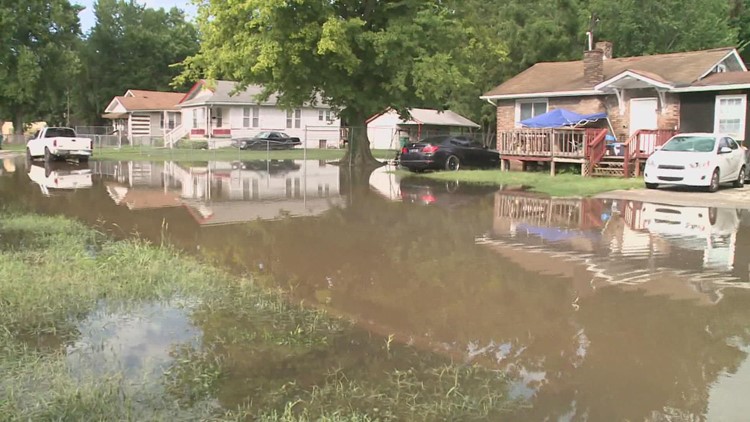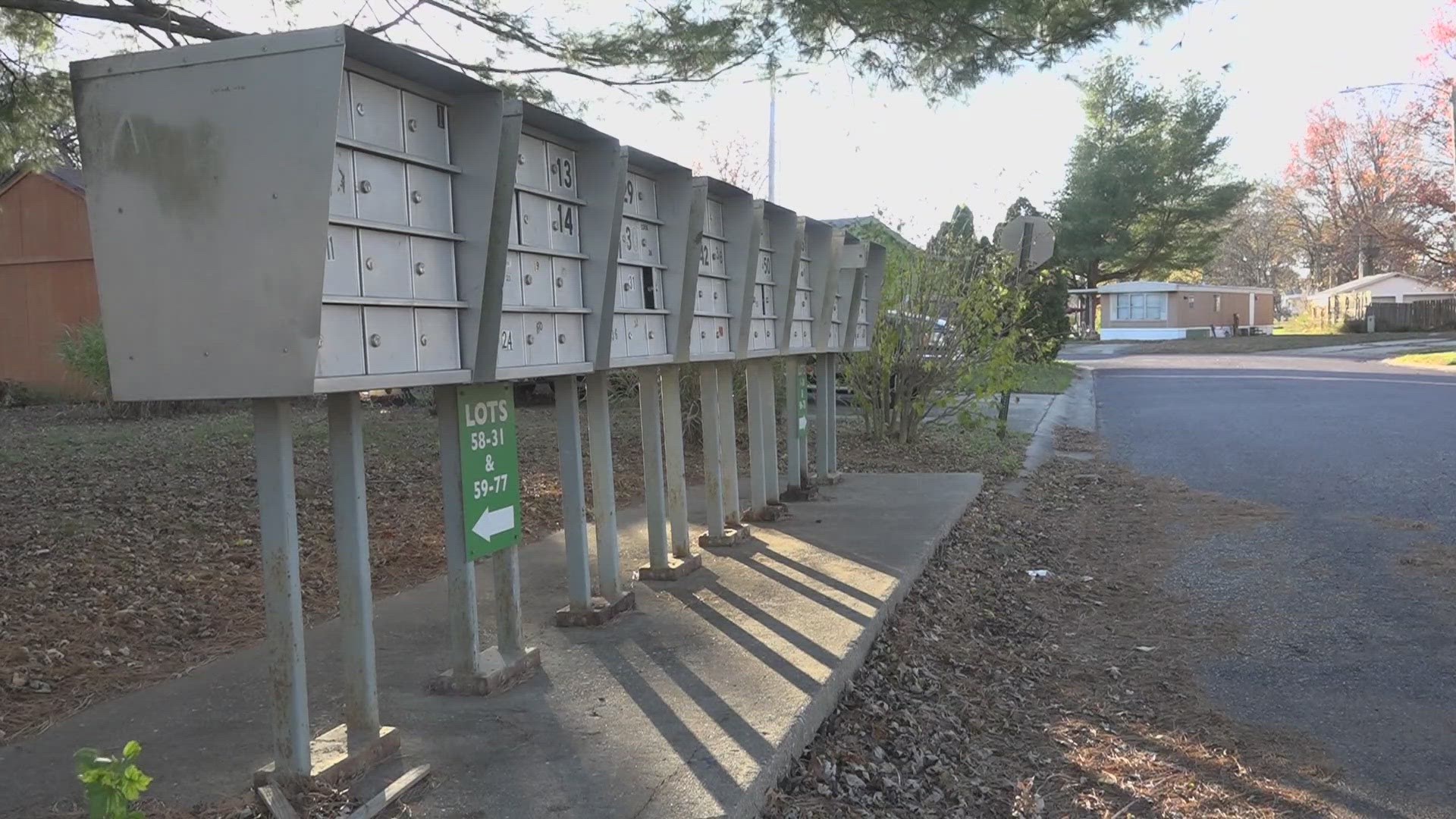EAST ST. LOUIS, Ill — The Illinois Department of Natural Resources on Thursday announced that $2.6 million in aid is on the way to East St. Louis to help buy 39 homes that have experienced repeated flooding and flood damage.
The funds from the Illinois DNR's Flood Hazard Mitigation Program will be used to reimburse the city for land it acquired on Mary Avenue and the Terrace Drive area near Harding Ditch. This comes after a 2022 storm that damaged the structures in that area and caused poor drainage during subsequent heavy rainfalls.
Homeowners who live in the properties will receive as much as $22,500 to purchase another home. After the properties are purchased and demolished, deed restrictions will be placed on this area to prevent future construction. The city plans to turn the land into public green space
“As our climate changes and we continue to see stronger and more frequent storms, it’s important that we work together to break the cycles that lead to reconstruction in flood-prone areas,” said Illinois DNR director Natalie Finnie
Although this process has been lengthy, the support from local, state and federal allies has not gone unnoticed by East St. Louis City Manager Robert Betts.
“This will be the end of a long-awaited process and a new beginning for residents impacted by the flooding. ... My goal now is to retain them as residents of East St. Louis by providing new housing opportunities that are not prone to flooding," Betts said.
In total, the East St. Louis project is estimated to cost nearly $2.6 million. That amount includes acquisition, asbestos abatement, demolition and clearance of the acquired properties, reshaping the properties to a safe and manageable condition, and acquisition transaction expenses, such as appraisals, title commitments, attorney fees and recording costs.
“The people of East St. Louis have faced a tragic cycle of flooding that has disproportionately affected families in the area,” said State Rep. Kevin Schmidt (R-Cahokia Heights). “This is a step forward to a better future for those so severely impacted and I appreciate the attention (the Illinois DNR) has given to addressing this need.”



